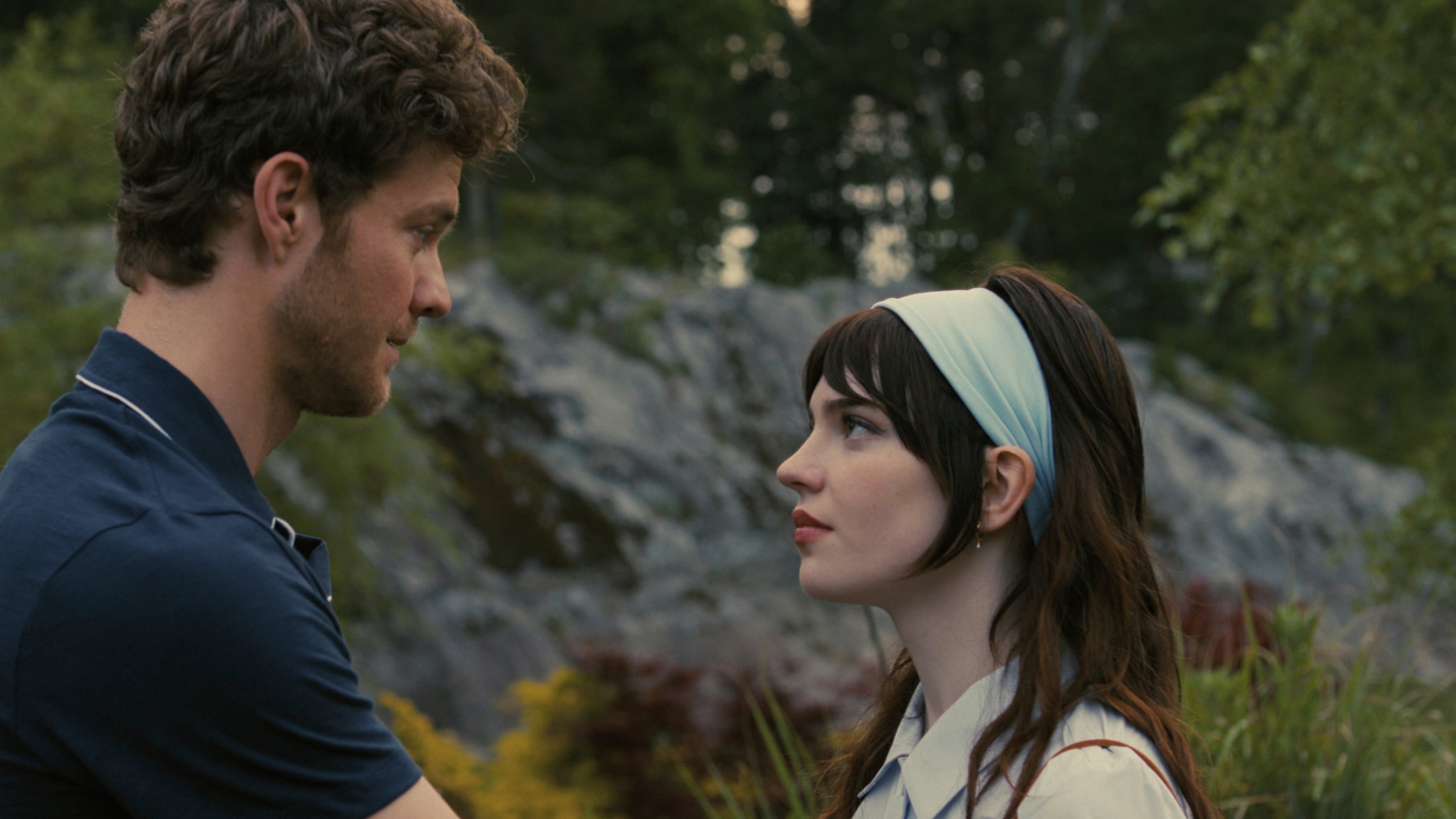“Companion” aims to make fun of a lot; film bros who take “Blade Runner” a little too seriously, Tesla owners still supporting Elon Musk and Ben Shapiro listeners with porn addictions.
But most of all, “Companion” pokes constant fun at the audience’s expectations as to how the story will unfold.
At the risk of spoiling a delightfully twisty film, I offer only some sparse plot details. Written and directed by Drew Hancock and produced by Zach Cregger of “Barbarian” fame, “Companion” follows a couple, Josh (Jack Quaid) and Iris (Sophie Thatcher), as they spend a weekend at a remote house in the woods with friends. As you’d expect, things go very wrong, very quickly.
As a satire, “Companion” is one of the smartest stories to make it to the big screen in recent memory. The film combines sci-fi, comedy, horror and thriller elements in unique fashion while also not biting off more than it can chew. And for a story with plentiful twists, the audience doesn’t feel blindsided by any of its surprises.
If “Companion” were a maze, it’d be a circular one, with each concentric layer designed to thematically mirror those on either side of it. There are no 90-degree turns designed for pure shock value, as Hancock’s script foreshadows what’s coming with subtle dialogue and intricate character work. In fact, “Companion” is not just a circular maze, but a descending one, and the audience can see the destination at the bottom for the entire runtime — Hancock telegraphs his ending from the opening scene. The secret sauce is the revelations we encounter along the way, ones that will leave us laughing and with our jaws on the floor in equal measure.
Chief among Hancock’s brilliant and perverse choices is the casting of his two leads, Quaid and Thatcher. Anyone who’s watched 10 minutes of “The Boys” on Amazon Prime will immediately recognize the Quaid archetype. Initially, it’s almost eye-roll-worthy; it seems like Hughie has popped up in the “Companion” universe. But Hancock’s script curdles that type of goofy-yet-charming softie into something much more sinister, and Quaid rises to the challenge convincingly.
Thatcher, on the other hand, brings an Anya Taylor-Joy-esque presence: strikingly beautiful, but also deeply unsettling in her mannerisms and speech patterns. Quaid may be the slightly more famous name at this junction in their careers, but “Companion’s” script ultimately rests on Thatcher’s shoulders, and she delivers a startlingly emotional performance.
Those familiar with Cregger’s horror-comedy style from “Barbarian” will recognize some of the same strokes in this film, especially in its use of gut-busting smash cuts. Hancock shares witty dialogue equally across the supporting cast, and Rupert Friend shines as the group’s wonderfully hammy Russian host Sergey. As the vacation goes haywire, quips about what the plural form of Xanax is and hilariously edited flashbacks about dinosaur costume meet-cutes only add to the film’s off-kilter vibe. Lukas Gage also turns in a more-than-meets-the-eye performance as Patrick, in which he has to dramatically switch tones multiple times.
Again, Hancock is doing a lot in “Companion.” But despite his lofty ambitions, the movie never loses sight of what it wants to be. He wants to make us laugh and feel unnerved in equal measure, but also for us to leave the theater thinking. Thinking about the commodification of advanced technology in our society and what people will use it for; a line about a user agreement arrives as the ultimate punch line by the third act. Thinking about how men treat women, and how young men in particular have slid increasingly toward right-wing politics in recent years. And thinking about what it feels like to be in love.
For “Companion” to work, it needed to nail many levels of satirical thought, which Hancock does, providing audiences with a simultaneously dark and LOL-worthy romp that feels both appropriate for our current moment and will more than likely stand the test of time.
